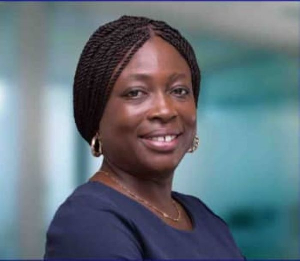Business News of Wednesday, 26 November 2014
Source: The Chronicle
World Bank urges Ghana to ban plastics
The World Bank has challenged the government of Ghana to be more pragmatic in its approach in tackling the filth that has engulfed the country, suggesting to President John Dramani Mahama to be bold to ban the use of plastic bags in the country.
According to the World Bank, Ghana is far from meeting the Millennium Development Goals (MDGs) on sanitation and it would be prudent for the country to aggressively work towards ensuring that its environs are clean and safe from diseases.
“We are in the countdown to the end of the MDGs, but in sanitation and health, we are not doing well, especially sanitation. We (Ghana) are second to Southern Sudan in open defecation.
“The Government should, say – come June 2015- there will be no open defecation. Plastic bags should also be banned in the country”, argued Kofi Tsikata, Senior Communication Analyst at the Ghana Office of the World Bank.
The World Bank communication analyst made this observation in Accra yesterday at the launch of a collaborative initiative between the National Service Secretariat (NSS) and the Ministry of Local Government and Rural Development that seeks to rid the country of filth.
The initiative, dubbed ‘National Service for National Sanitation Day’ would see the two institutions work hand-in-hand on the first Saturday of every month for clean-up exercises in communities across the country.
According to Mr. Tsikata, the banning of plastic bags should be seen as one of the mechanisms of getting rid of the huge waste that the country has from time to time been grappling with.
He said to ensure a clean and safer environment, it was important for the country to license plastic buyers who would from time to time buy-back waste plastics, especially the bottled and sachet plastics from established joints.
Mr. Tsikata said waste is wealth in most countries around the world, so it was about time Ghana makes use of it.
He, therefore, called on established institutions like Coca-Cola and the Accra Brewery Company Limited, producers of Voltic, to support the buy-back plastic initiative.
The Minister for Local Government and Rural Development, Julius Debrah, on his part said Ghanaians should remove the sense of hopelessness about the country and make way for development.
According to him, people think hopelessly about the country as if it was coming to an end and nothing could be done about it.
He said, “We want to reverse the sense of hopelessness so that our children wouldn’t grow up to meet cholera”.
He lamented over how hopeless people think about the current sanitation situation in the country adding that, he was optimistic he could turn the situation around, especially with this collaboration with NSS.
He commended the NSS and the National Service Personnel Association (NASPA) for coming on board for the fight against filth. He said “If we don’t clean our own environment no one would do so for us”.
He appealed to every Ghanaian to come out and clean their environment come December 6, 2014, to ensure a successful exercise.
The Acting Director of NSS, Michael Kpessa Whyte said every marriage is expected to bring forth offspring and, therefore, the collaboration between the two institutions is supposed to produce four main purposes.
He explained that the collaboration would bring about a cleaner Ghana, healthy citizenry, turn garbage into wealth and create employment.
Mr. Whyte said the whole initiative should be geared towards a clean Ghana that people would be proud of.
He hinted that all NASPA personnel would be in identifiable T’ shirts to participate in the National Sanitation Day across the country.










